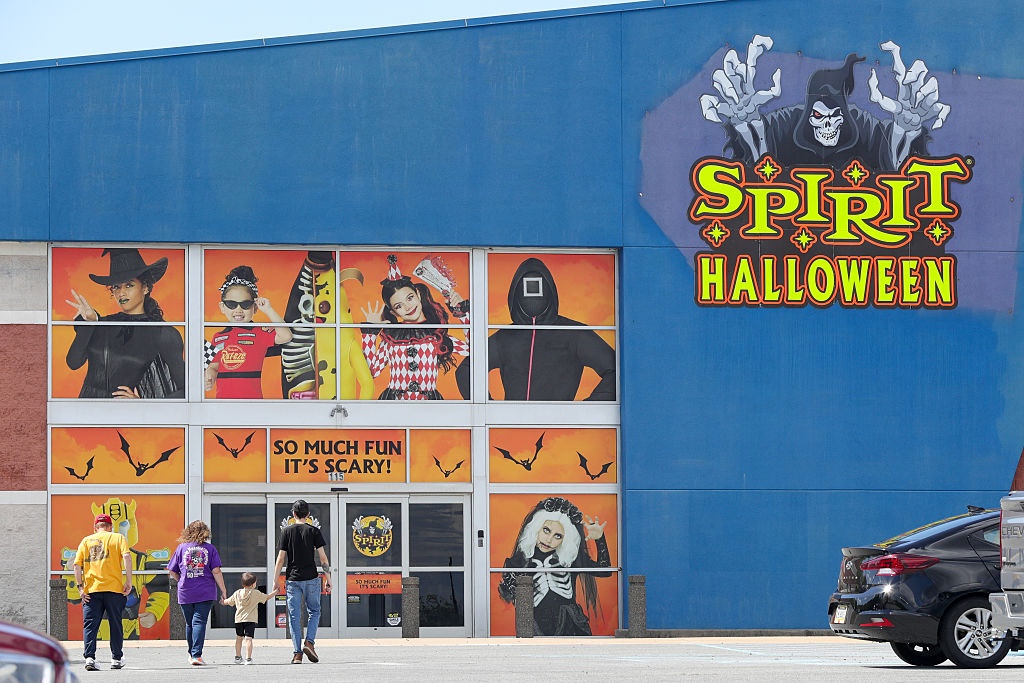Spirit Halloween Is Robbing the Shopping Mall Cemetery
Spirit Halloween’s vulture-like business model keeps operating costs low by snapping up short-term leases in vacant retail spaces, making itself a rare beneficiary of private equity’s hollowing out of big box stores across the country.

By moving into the former locations of big box stores, Spirit Halloween is taking advantage of Wall Street bloodsuckers’ hollowing out of America. (Paul Weaver / SOPA Images / LightRocket via Getty Images)
As All Hallows’ Eve approaches, more than 1,300 Spirit Halloween stores have temporarily opened their doors across the United States and Canada, bringing seasonal life back to empty big-box locations abandoned in the retail apocalypse.
By moving into the former locations of brands like Bed Bath & Beyond, Rite Aid, Sears, JoAnn Fabrics, Forever 21, and Big Lots — once-ubiquitous retail powerhouses sent to an early grave after being bankrupted by private equity — Spirit Halloween has made itself a rare beneficiary of Wall Street bloodsuckers’ hollowing out of America.
This year, retailers will shutter 15,000 stores in the United States, more than doubling last year’s brick-and-mortar closures and officially surpassing the record set during the pandemic in 2020. Private equity’s buy, gut, and burn strategy of leveraged buyouts and debt transfers has played a significant part in this wave of retail death: In 2024, private funds were behind half of all large US bankruptcies, and last quarter, six of the fourteen largest bankruptcies were for private equity–backed firms.
Private equity and hedge fund–managed retailers laid off over half a million people between 2009 and 2019, even as the retail industry at large added over one million additional jobs during the same time.
Retail death is a pillar of Spirit Halloween’s business model: the company can keep operating costs low by snapping up short-term leases at vacant former retail spaces, sometimes at discounted rates. Spirit Halloween’s vulture-like model of drive-by leasing has become so infamous that it was spoofed on Saturday Night Live.
Of the nineteen Spirit Halloween stores opening across Minnesota this year, for instance, eleven locations once belonged to retailers that have filed for bankruptcy or been hollowed out by private equity.
Despite the festivities and its perhaps commendable use of vacant space, Spirit Halloween’s business model has faced charges of exploitative practices. In Denver, locals are pushing back against Spirit’s decision to open a location this year across the street from a beloved independent Halloween store.
Meanwhile, Spencer Spirit Holdings, the private corporation behind Spirit Halloween and Spencer’s Gifts, reportedly rakes in nearly $2 billion a year in revenue — and over half of that is from Spirit Halloween, even though the business only operates three months out of the year.
Spencer’s Gifts is also rapidly expanding a new temporary retail venture — Spirit Christmas — with flagship stores already open for the holiday season.